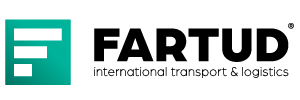Fartud Green Vision 2030
Company
Finding regarding CO2 reduction in the field of transport and logistics
Our group of companies undertakes that by 2030 to reduce compared to 2019 by 40% greenhouse gases of type Scope 1 and 2.
In addition, Fartud undertakes to reduce emissions by 30% in the same period greenhouse gases from the Scope 3 category.
Gases from the Scope 1 and 2 category refer to gas emissions from offices, halls and company cars, while gases from the Scope 3 category refer to gas emissions caused by transport of subcontracted goods.
What do Scope 1,2 and 3 emissions mean?
Scope 1 emissions are direct emissions from own sources or controlled sources. These refer to the company's buildings and cars. Scope 2 emissions are indirect emissions caused by the generation of electricity, steam, heat and cold. Scope 3 emissions are all indirect emissions (not included in Scope 2), which are generated by the company's value chain including emissions before and after storage.
Such as the extraction and production of purchased materials and fuel or activities in transport equipment that are not in the possession or control of the reported company.

Our company is already working with its suppliers and customers to choose and implement smarter and more environmentally friendly solutions, as long as they are economically feasible. Customers will be offered services for optimizing delivery chains, especially in terms of costs and sustainability, including consolidating of the goods to be transported and optimizing the choice of mode of transport, transport routes and packaging used during transport.
"With these ambitious goals we establish a clear directive in our sustainability efforts for the coming years. We intend to be pioneers in our industry, and we know that this requires effort from the entire Fartud organization, but failure is not an option for us. We are convinced that sustainability and economic viability go hand in hand. "
Silviu Farkas – R&D Manager
Measures already implemented:
- our car fleet increased by 30 electric vehicles
-
business trips that involve unnecessary travel are replaced by online meetings
-
train trips are preferred for the necessary business meetings and for the events within the company
- home-office days were introduced among employees
-
the employees are reimbursed the travel tickets for the public transport
-
the possibility for internal employees to share the company car
-
fuel efficient service machines (replacement of cars with electric cars)
-
the introduction of LNG-operated trucks with the following targets: compared to Diesel, LNG reduces greenhouse gas emissions by up to 70%. Moreover, sulfur dioxide and fine dust emissions, nitrogen monoxide emissions by up to 90% and noise emissions by up to 50% are reduced by 100%.
- LED lighting for offices and hall
- Our company has installed a solar power plant on our warehouse, which has a total output of green and sustainable energy that is equivalent of 28705 green certificates
-
replacement of the traditional air conditioning system with a Cloud type one
-
switching to environmentally friendly food and drink (regional, seasonal and meat-free)
-
waste sorting
-
renewal of the truck fleet according to the criterion of fuel efficiency and reduction of consumption
-
in 2021 we financed the afforestation of 3 ha of forest.
For the year 2022, we realized the afforestation of 10 ha of forest in collaboration with Rotary Cetate Timisoara.
